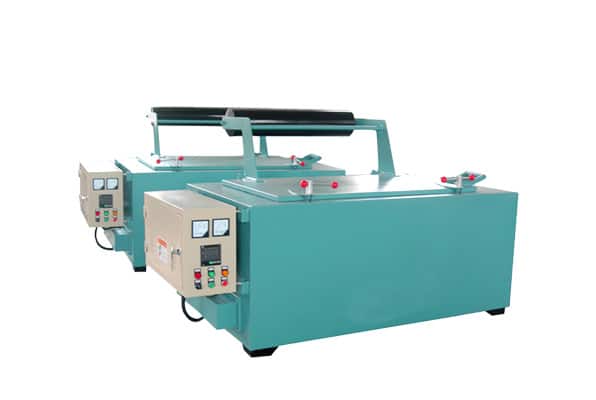Introduction: The Critical Role of Resistance Heating in Industrial Preheating
In metal processing, chemical production, and material treatment, preheating processes significantly impact product quality and production efficiency. Electric resistance preheating furnaces, https://8ruiyan.com/en/all-preheat-furnaces/with their precise temperature control, stable heating performance, and clean energy characteristics, have become the preferred preheating solution for many industrial enterprises. This article provides an in-depth analysis of the working principles, system composition, technical advantages, and selection criteria for resistance-type electric preheating furnaces, offering professional guidance for equipment selection.

1. Core Working Principles of Resistance-Type Electric Preheating Furnaces
1. Joule’s Law: The Physical Basis of Resistance Heating
Resistance preheating furnaces operate based on Joule’s Law (Q = I²Rt), where electrical energy is directly converted into thermal energy as current passes through high-resistance materials. This conversion efficiency typically exceeds 95%, far surpassing traditional combustion-based heating methods.
2. Typical Workflow
- Power Input: Three-phase or single-phase AC power is connected to the control system.
- Resistance Heating: Current flows through heating elements such as nickel-chromium alloys or silicon carbide rods.
- Transfert de chaleur:
- Radiation (60-70%)
- Convection (20-30%)
- Conduction (10-15%)
- Temperature Feedback: Thermocouples monitor in real-time, while PID controllers dynamically adjust power output.
2. System Composition of Resistance Preheating Furnaces
Detailed Core Components
| Component | Material/Type | Function |
|---|---|---|
| Heating Element | NiCr Alloy (OCr25Al5)/SiC Rods/Molybdenum Wire | Core heating component, withstands 1200-1800°C |
| Furnace Lining | Ceramic Fiber/Alumina Hollow Ball Bricks | Multi-layer insulation, heat loss <5% |
| Temp. Control | PID + SSR/SCR Power Regulation | Accuracy ±1°C, programmable multi-stage control |
| Power System | Transformer/Solid-State Relay | Provides stable high-current output |
| Caractéristiques de sécurité | Overheat Alarm/Leakage Protection/Emergency Cooling | Complies with CE/UL standards |
3. Key Advantages of Resistance Preheating Furnaces
1. Technical Comparison (vs. Gas Furnaces)
| Parameter | Resistance Type | Gas Type |
|---|---|---|
| Thermal Efficiency | 90-95% | 60-75% |
| Temp. Accuracy | ±1°C | ±5-10°C |
| Heating Rate | Medium (5-10°C/min) | Fast (15-30°C/min) |
| Carbon Emissions | Zero Direct Emissions | 0.2-0.5kg CO2/kWh |
| Maintenance Cost | Low (Only Heating Element Replacement) | High (Burner System Maintenance) |
2. Unique Application Benefits
- Material Protection: No combustion exhaust, ideal for sensitive materials like titanium alloys
- Process Repeatability: Storable temperature profiles ensure batch consistency
- Workspace Adaptability: No flue required, flexible installation
4. Typical Applications & Selection Guidelines
1. Industry Use Cases
- Metal Processing: Aluminum ingot preheating (350-450°C)
- Chemical Production: Catalyst carrier calcination (600-800°C)
- Electronics Manufacturing: Semiconductor encapsulation preheating (200-300°C)
2. Key Selection Parameters

3. Operational Considerations
- Preheating Curve Optimization: Gradual heating to avoid thermal shock
- Maintenance Checklist:
- Monthly inspection of heating element oxidation
- Quarterly calibration of temperature sensors
- Regular removal of furnace dust
5. Future Technology Trends
- Smart Control: AI-driven dynamic parameter optimization
- Hybrid Heating: Resistance + induction hybrid systems
- Energy Innovation: Integration with solar/storage systems
Conclusion
Resistance-type electric preheating furnaces are revolutionizing industrial heating processes with their exceptional temperature control and environmental benefits. Selecting the right resistance heating solution can improve energy efficiency by 15-30% while significantly enhancing product quality. We offer a full range of resistance preheating solutions from 200°C to 1600°C—contact our engineering team for customized proposals.
Get a Quote:
Whatsapp:86-19106101570
wechat:86-19106101570
email:nieyili@cnryan.com
